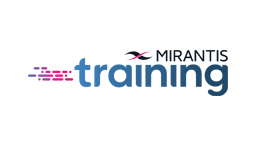title
Please take a moment to fill out this form. We will get back to you as soon as possible.
All fields marked with an asterisk (*) are mandatory.
Kubernetes Operations
Course Description
Overview
This course centers on developing the skills and knowledge needed for Day-1 Kubernetes operations for managing applications. Using best practices as guiding principles, students will engage in topics pertaining to the Kubernetes architecture to make informed decisions for production workloads. Topics include configuring resource availability for applications, implementing advanced scheduling for applications, and administering user roles and permissions for the Kubernetes cluster. Kubernetes Operations and System Integration teams will benefit greatly as they plan and deploy their Kubernetes production environments.
This course is one step in the following Learning Journey:
Objectives
Audience
Prerequisites
- CN120 (or equivalent) experience
- Familiarity with the Bash shell: filesystem navigation and manipulation, command line text editors like vim or nano, common tooling like curl, wget and ping
- Familiarity with JSON and YAML notation
Topics
- Review the basic architecture of a Kubernetes cluster
- Install a well-validated HA Kubernetes cluster on a collection of hosts
- Load balance kubectl commands across an HA Kubernetes cluster
- Review how pods are scheduled on worker nodes
- Examine the node selector
- Discuss implementing the impact of taints and tolerations for Kubernetes workloads
- Review both pod and node affinity and anti-affinity
- Discuss releasing updates to applications running on the Kubernetes platform
- Explore native tooling for updating application
- Examine how Helm manages updating applications
- Review the architecture required to achieve high availability for applications
- Discuss best practices for using liveness and readiness probes
- Explore Kubernetes auto-scaling of applications
- Discuss how to prioritizing Kubernetes workloads
- Discuss network routing options within Kubernetes
- Discuss the benefits of the Ingress controller and object
- Examine the Ingress object and controller pattern
- Review available storage options for applications
- Discuss constraints of persistent storage in a standard Kubernetes cluster deployment
- Examine the storageClass object
- Discuss RBAC implementation within Kubernetes
- Examine Kubernetes RBAC components
- Review Auditing within Kubernetes
- Determine how to enable Auditing within a Kubernetes cluster
- Review the the Kubernetes Networking Model
- Discuss how Network Security is managed within the Kubernetes cluster
- Examine managing network security with native and non-native Kubernetes tooling
- Explain the native method of creating Network Policies
- Identify security mechanisms available to security between containers, pods, and the Kubernetes cluster
- Discuss strategies for enabling flexibility within security policy while maintaining security compliance
- Examine how to enable Pod Security Policies
- Discuss multi-tenancy in a Kubernetes cluster
- Examine native Kubernetes objects used for enabling multi-tenancy capability
- Discuss multi-tenancy methods for Kubernetes
Related Courses
-
OpenStack Essentials
OS100- Duration: 1 Day
- Delivery Format: Classroom Training, Online Training
- Price: 795.00 USD
-
OpenStack Administration & Operations (Ussuri)
OS220- Duration: 4 Days
- Delivery Format: Classroom Training, Online Training
- Price: 3,180.00 USD
Self-Paced Training Info
Learn at your own pace with anytime, anywhere training
- Same in-demand topics as instructor-led public and private classes.
- Standalone learning or supplemental reinforcement.
- e-Learning content varies by course and technology.
- View the Self-Paced version of this outline and what is included in the SPVC course.
- Learn more about e-Learning
Course Added To Shopping Cart
bla
bla
bla
bla
bla
bla
Self-Paced Training Terms & Conditions
ONCE YOU ARE ENROLLED IN THIS COURSE YOU WILL NOT BE ABLE TO CANCEL YOUR ENROLLMENT. You are billed for the course when you submit the enrollment form. Self-Paced Virtual Classes are non-refundable. Once you purchase a Self-Paced Virtual Class, you will be charged the full price.
- Students will receive an access code within 1-3 business days.
- If purchasing a self-paced course for multiple students, the purchaser will receive the access codes and must distribute them individually to the students.
- Students have access to the course 24/7 and will need to read and follow all instructions carefully to complete the course successfully within their allotted time.
This is a Self-Paced virtual class; it is intended for students who do not need the support of a classroom instructor. If you feel you would better benefit from having access to a Subject Matter Expert, please check to see if an Instructor-Led version is available. Minimal technical support is provided to address issues with accessing the platform or problems within the lab environment.
Mirantis On-Demand courses are available for 1 year and you will have 1 year to consume the content.
After you receive confirmation that you are enrolled, you will receive further communication from Mirantis. Your 1 year access begins once you receive your confirmation from Mirantis.
Lab Requirements:
- Laptop with WiFi connectivity
- Attendees should have the latest Chrome or Firefox installed, and a free account at strigo.io
Exam Terms & Conditions
Sorry, there are no classes that meet your criteria.
Please contact us to schedule a class.

STOP! Before You Leave
Save 0% on this course!
Take advantage of our online-only offer & save 0% on any course !
Promo Code skip0 will be applied to your registration
Purchase Information
title
Please take a moment to fill out this form. We will get back to you as soon as possible.
All fields marked with an asterisk (*) are mandatory.










